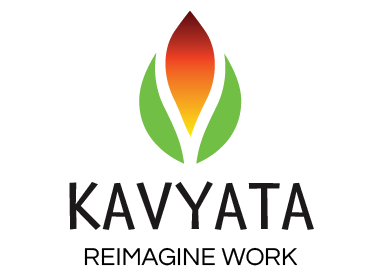
18 Aug 8 Ways To Accelerate Your Career In The Future Of Work
“Success is liking yourself, liking what you do, and liking how you do it.” – Maya Angelou
Accelerating your career and achieving your definition of career success will be a journey that is unique to you. However, there are some guiding principles which can accelerate your career growth for all kinds of careers, especially in the future of work, where careers are increasingly non-linear and unpredictable.
Career acceleration is a result of consistently applying these principles. It’s like feeding your career with the right high-powered nutrition, which will ensure power growth and a healthy career. So what are the components of this career boosting diet?
1. Switching on the right mindsets for the Future of Work: Career growth begins with switching on the right mindsets and understanding why the future of work requires these mindsets. The future of work is one where skills, continuous learning and extreme learning agility will be utmost priority. Therefore a growth mindset applied to careers is a mix of optimism, a keen willingness to learn and loads of curiosity. These are vitally necessary to stay in the learning game, and future career success will hinge on learning, more than anything else. Also, because careers will be non-linear, and there will be multiple formats of work like flexible work, gig work, independent work as well as the likelihood of multiple career changes, a mindset of resilience is equally necessary. Resilience enables you to tide over the changing external factors and mould your career according to these.
2. Self-Awareness: Career development depends on knowing your skills, strengths and values and impact fully showing these in the form of your personal brand. Early on in your career, develop the practice of seeking feedback – not just the formal, performance appraisal kind, but more informal feedback from mentors, seniors and even those outside your domain/industry. In fact, seeking feedback is recognized as a behaviour which promotes learning agility and learning agility is a future skill. Leading learning agility researcher Dr. Warner Burke, Columbia University, recommends that seeking feedback, even though it may be threatening to your ‘self-esteem’ is crucial for career development. Attempt to understand your behaviours and your foundational skills. As you change careers, you will need to also zoom in on your transferable skills. You can use various tools and assessments to help you with this. Also, working with a career coach, can help you see potential which you may not be aware of.
3. Sensing your Career Dream: A lot may be said about strategies to accelerate your career growth, but unless you sense your career dream deeply and powerfully, these strategies will lack a driving force and energy. Your career dream consists of how sensing you want to feel doing the work you want to do – do you want to feel inspired, feel powerful, feel creative and independent, feel buzzed about high-growth etc. This feeling is what will keep you going after your career aspirations in the long haul. Career acceleration is not going to be always upwards, and linear, in the future of work, so your career dream keeps you anchored for growth which looks unique to you.
 Take time out to sense your career dream
Take time out to sense your career dream
4. Surrounding yourself with people you can learn from – This goes beyond the cliches of networking. As we know, learning and reinventing are the mantras for career success in the future of work, and one of the best ways to do this is to be around people who support your learning and from whom you can learn new ideas, perspectives and skills. The more diverse your relationships, the greater access and opportunities you have to get exposed to and absorb new ideas. Creating your own ‘advisory board’ of people who are invested in your career success, will ensure that you are always primed for the right career moves. Share your career aspirations with your advisory board and enlist their help in getting work and projects which are cross-functional, strategic and offer high visibility. And increasingly, just as the best sportspeople credit a large part of their success to their coaches, professionals in other spheres would also benefit greatly by working with personal development coaches or career coaches to accelerate their careers.
5. Developing powerful habits: We are what we repeatedly do. Excellence, then is not an act, but a habit. Over the long run, career growth is about habits of success. In fact it is said that no one can take an elevator to career success, you have to take the stairs instead. The stairs are an analogy for the habits which slowly and steadily advance you towards career success. Taking the stairs requires a little bit of effort applied consistently over time, just like what it takes to develop habits. The habits could range from exercise and eating and sleeping on time, to habits for increasing mindfulness and habits for practicing downtime from social media and smartphones. It is well known that a 1% improvement done consistently amounts to a 37% improvement over a year, because of the power of compounding. While these habits may not look as glamorous a contributor to career success as maybe developing strategic networks, these habits make all the difference to supercharging your productivity and creativity. And career success is about your productivity and creativity applied to greater and more complex goals.
 Habits are the key to supercharging your productivity and creativity
Habits are the key to supercharging your productivity and creativity
6. Experimenting and trying something different – The future of work is uncertain; the erstwhile rules of career success like keep your head down and do the work well, or remain loyal and the company and your bosses will take care of you, don’t apply anymore. Now more than ever, you are in the driver’s seat yourself for advancing your career and it requires you to take an experimental and flexible approach. You may have to give up what you know well and are already comfortable doing and instead take a few experimental steps into doing the unknown. This might mean venturing into a new country for a new kind of role, switching to a new domain, giving up a full time role and experimenting as an independent worker, or being a part of task forces or secondments which give you new exposure. While in the short term, this may sometimes not turn out exactly the way you hoped it would, over a period of time, it pays career dividends. Three ways in which this happens a) there is a chance for much greater, exponential success and growth, if your career experiment does take off b)you develop flexibility, resilience and learning agility even from a setback c) you end up meeting new kinds of people through your career experiments and your network becomes richer.
7. Branding yourself smartly: Smart branding is about knowing what your secret sauce ingredients are and putting that out in a fun, unique way. And it doesn’t have to be all about work. Among the new rules of career success, individuality and uniqueness are highly prized features, not bugs, and personal branding is this rule in action. According to Dorie Clark, author of Entrepreneurial You and Reinventing You, you can self-promote your brand in two ways, without looking like a jerk a) focus on the facts for e.g. say you have grown businesses by 3x times instead of ‘growth expert’ b)bump up your credibility and brand with stories and experiences
8. Energising yourself : The authors of The 100 Year Life (Lynda Gratton and Andrew Scott) aver that you will have to prepare for ever longer working lives as overall, lifespans increase and we move towards a 100 year life. In this scenario, career success is about managing your energy and keeping it growing steadily to serve you in pursuing your career aspirations. Even now, highly productive people who are at the top of their game, swear by taking care of their health and energy. For instance, Richard Branson and Barack Obama fit exercise into their daily schedule. The impact of exercise on mental health has been studied and written about extensively in the book Spark: The Revolutionary New Science of Exercise and the Brain by Harvard professor John Ratey.
So apply these principles to get your career into a sustainable growth path and the results will speak for themselves.

Kavita, an alumna of IIM Ahmedabad, brings 20 years of experience in Experiential Learning, Coaching, Personal Growth & Change. Her forte is Career Transition Coaching and Leadership Development for mid-senior individuals, helping them find success and fulfilment at work . She also teaches Career & Self Development courses at leading management institutes including IIM Kozhikode, IIM Udaipur, IIM Indore and at the IITs.

